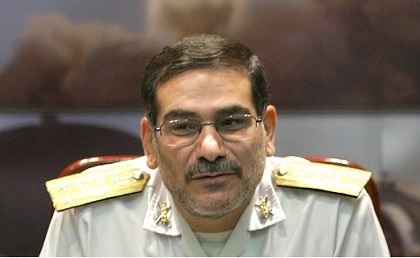Is Iran getting a free pass on Iraq and Syria?
Friday, 13 December 2014
Majid Rafizadeh/Al Arabiya
As the leaders of the P5+1 states (China, France, Germany, Russia, the United Kingdom, and the United States), and Iranian politicians continue to negotiate with respect to the nuclear program, the Islamic Republic is considerably being granted a free pass on both Iraq and Syria. This involves a green light for Iran’s military, financial, advisory, and intelligence engagements in Damascus and Baghdad.
The current geopolitical game change, and risk in the Middle East, plays a crucial role in this development. Since the fighters of the Islamic State have gained both territory and manpower, the international community, and the United States in particular, has made a tactical shift by geopolitically recalculating their position against Iran’s role in other regional nations.
For example, the extension of the nuclear negotiations, which was offered by the U.S. Secretary of State John Kerry and was welcomed by the Iranian Foreign Minister Javad Zarif, was an outcome of this geopolitical and tactical shift.
“The current tactical shift in the Obama administration has been shaped by making compromises with Iran”
The Obama administration frequently used to draw attention to Iran’s meddling role in Arab countries’ affairs, particularly in supporting President Bashar al-Assad, destabilizing Iraq, or interfering in other regional countries’ affairs such as Bahrain and Yemen. Nevertheless, this paradigm has shifted as a geopolitical game changer, ISIS has emerged.
In other words, the current tactical shift in the Obama administration has been shaped by making compromises to Iran, as well as overlooking Tehran’s regional hegemonic ambitions for the short term.
The confluence of geopolitical interests and objectives between the U.S. and the Iranian government, in combating ISIS, has resulted in the White House tacitly accepting Iran’s increasing military and security involvements in various regional countries, and has specifically led to the White House to turn a blind eye to Iran’s Revolutionary Guard Corps’s operations in Iraq and Syria.
Qassem Suleimani and Ayatollah Khamenei in charge
By examining the geopolitical reality on the ground, it appears that neither the Syrian President Bashar al-Assad, nor Iraq’s Prime Minister Haider al-Abadi or the ruling Shiite coalition in Iraq are predominantly in control of their state’s policies.
Currently, two crucial figures appear to be shaping the national security of Iraq and Syria: Qassem Suleimani, the head of the Quds Force (a branch of Iran’s Revolutionary Guards Corps which operates in foreign countries), and the Islamic Republic’s Supreme Leader Ayatollah Ali Khamenei.
Most recently, Iran’s political and military actions in Baghdad or Damascus reveal that the sovereignty of Iraq or Syria is significantly less of a crucial matter for Iran’s Supreme Leader and Suleimani.
Although the Islamic Republic denied using Iraq’s airspace to launch airstrikes in the Iraqi province of Diyala, Iranian leaders have recently confirmed the airstrikes. The Deputy Foreign Minister Ebrahim Rahimpour further asserted Iran’s role in Iraq by stating: “We will not allow conditions in Iraq to descend to the level of Syria, which has been created by foreign players,” and he added “and certainly our assistance [to Iraq] is stronger than our assistance to Syria, because they are nearer to us.”
When it comes to Syria, the Islamic Republic continues to provide military, financial, advisory, and intelligence assistance to the government of Bashar al-Assad and it has been shaping the policies of Damascus through various modes of power and apparatuses. The military armaments of the Syrian government have been repeatedly strengthened by Iran’s manufactured arms. Regarding the Syrian missile-production facilities, Brigadier General Amir Ali Hajizadeh, the Commander of the Islamic Revolution Guards Corps (IRGC) Aerospace Force, boasted recently, “The missile production plants in Syria have been built by Iran and the missiles designed by Iran are being produced there.” With the U.S. acquiescence, Ayatollah Khamenei and Suleimani experience free reign and empowerment to shape the Iraqi and Syrian government’s policies.
The long term unintended consequences
Although the American geopolitical and tactical shift in making compromises to Iran’s regional hegemonic ambitions might serve Washington’s interest for the short term, this policy will inevitably lead to unanticipated long term repercussions.
This illustrates that the U.S. has not learned from history, particularly the times that it decided to carry out uninformed policies or turn a blind eye to some geopolitical changes in the Middle East.
First of all, it is crucial to point out that Iran is fundamentally reshaping the security institutions in Iraq and Syria by its increased involvement. The Iranian leaders will be further cementing their religious, political, military and institutional footprints in Iraq and Syria. Secondly, the Islamic Republic has been playing a crucial role in remobilizing as well as reactivating the Shiite militia groups in Iraq. This will lead to the reinforcement of the sectarian divide in Iraq which has plagued the country for many years. Iran’s pro-government Shiite militias in Iraq, Syria, Lebanon and Yemen are fundamental pillars for advancing the Iranian leaders regional plans.
Finally, through the revival of Shiite militias, it is unrealistic to contend that Iran will not be seeking to create another Hezbollah in Iraq. The recent challenges that Iranian leaders have encountered with regards to the rise of the Islamic State, make them recalculate Tehran’s need to ratchet up its religious, economic, security and political influence in Iraq. Tehran has invested billions of dollars in Iraq’s security and military forces. The mobilization of the Shiite militia in Iraq can provide the platform for the establishment of another powerful proxy Shiite group in Iraq which is a replica of Lebanon’s Hezbollah.























